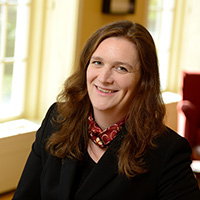Doctor of International Affairs (DIA)
Overview
The Doctor of International Affairs is designed for professionals with at least five-years of full-time work experience in international affairs or a related field who seek to further their expertise through an advanced practitioner’s degree. Under the guidance of school experts and scholars, you will take courses and conduct research on the issues that most align with your professional interests.
Become an Expert
The program is delivered on an accelerated two- or three-year timeline and culminates with a doctoral thesis. The curriculum emphasizes learning, research, and evaluation allowing you to apply existing practice and knowledge toward solving real-world problems in fields such as:
- conflict resolution and negotiation
- climate change, energy access, global environmental policy
- sustainable development, foreign aid, and global poverty
- human rights and humanitarian affairs, democratization, nation-building
- international political economy, economic development, emerging markets
- American foreign policy, grand strategy, history and statecraft
- defense and security, cybersecurity, and terrorism/counterterrorism
- regions of the world, and more
Doctor of International Affairs vs. PhD
The Doctor of International Affairs is a practitioner’s degree where students conduct applied research culminating in a doctoral thesis within their area of professional expertise. It is different from a traditional PhD, which requires comprehensive exams and is usually thought of as producing an original body of knowledge in preparation for careers that include, but are not limited to, academia.
